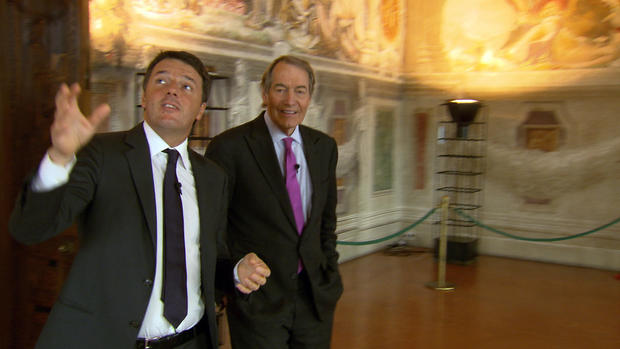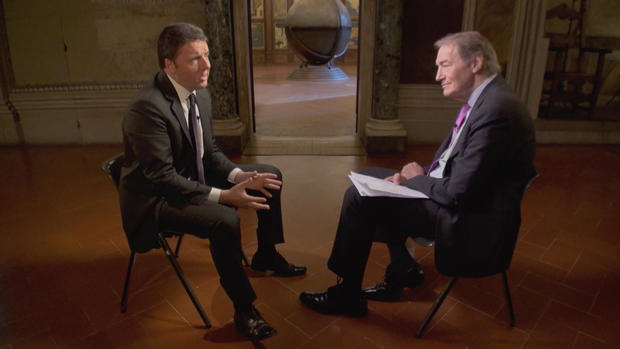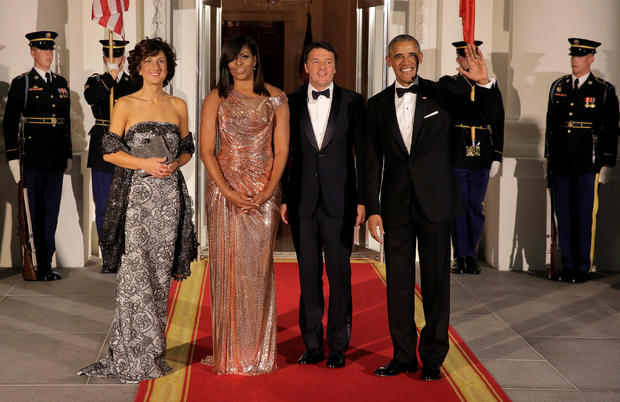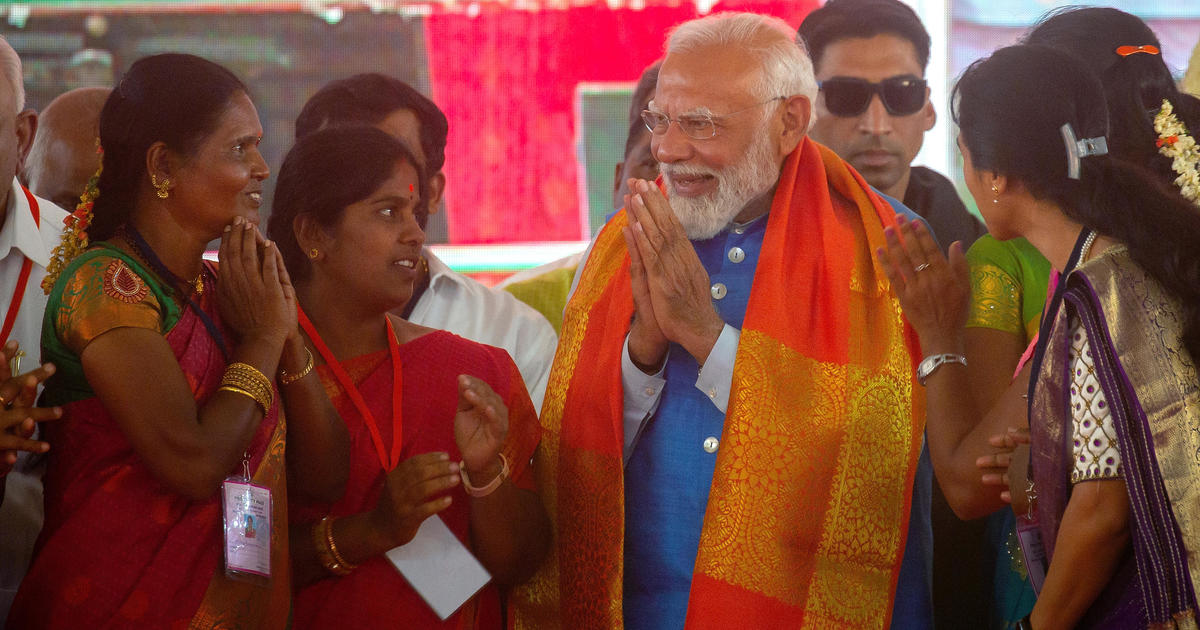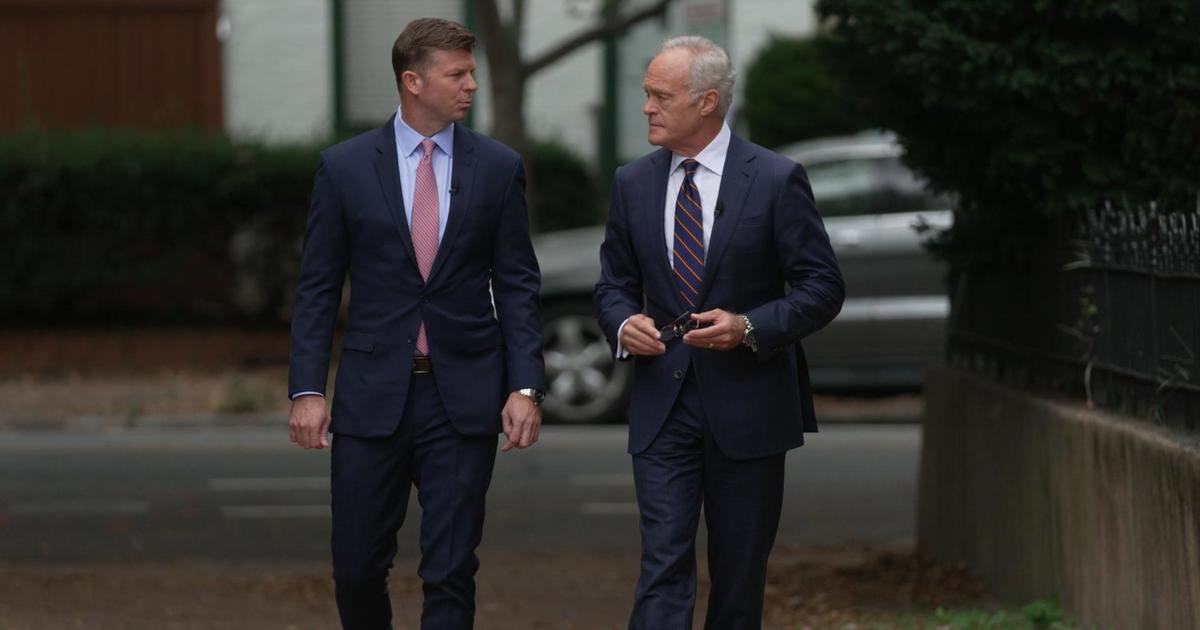The Prime Minister
The following is a script from “The Prime Minister,” which aired on Nov. 27, 2016. Charlie Rose is the correspondent. Draggan Mihailovich and Sabina Castelfranco, producers.
Italy is the stage for the next big drama in this tumultuous political year. Next Sunday, Italians will go to the polls to vote on a referendum driven by Matteo Renzi, Italy’s brash and charismatic prime minister. He wants to reduce the size of Italy’s Senate by two thirds, literally getting rid of hundreds of politicians, a monumental proposition for Italy and himself. Renzi argues that Italy has changed governments 63 times in 70 years and trimming the size of government will help bring order to chaos and move the country into the 21st century. The vote will have implications for all of Europe and hinges on the considerable political skills of a modern-day Machiavelli, a 41-year old former mayor of Florence, who is the youngest prime minister in Italy’s history.
We met Matteo Renzi in his hometown of Florence, where the Renaissance was born and where it flourished. He insisted on conducting the interview in the magnificent Palazzo Vecchio, the Old Palace, in a room with a view.
Charlie Rose: Look out the window.
Matteo Renzi: Yes!
It was only 48 hours after Donald Trump had stunned the world.
Charlie Rose: This is the headline I saw in the New York Times this morning when I got up here in your city. What’s your reaction?
Matteo Renzi: It’s a surprise. It’s a great surprise. Yesterday I spoke with the president elected.
Charlie Rose: You spoke with Trump?
Matteo Renzi: Yes. I called…
Charlie Rose: Did he call you or you called him?
Matteo Renzi: I called him. And because the president elected deserve a call from the prime minister of Italy. And I, I wish him every, every good, good luck for, for the next years.
Charlie Rose: Did you remind him that you had supported his opponent?
Matteo Renzi: But we don’t discuss about it. But it’s normal. It’s the, the great, the great play of democracy.
Matteo Renzi finds himself at the center of a great play of democracy. Italians will vote on December 4th on a referendum he initiated. It would change Italy’s constitution by slashing the number of senators in Parliament.
Matteo Renzi: Italy is incredible. Because Italy is the country with 950 members of Parliament. The double of the United States of America.
Charlie Rose: U.S. has 435 members of the House, and 100 members of the Senate.
Matteo Renzi: In Italy, the number are 630 in the Chamber, and in the Senate 315.
A “yes” vote would reduce the Senate to 100 members who would be appointed and not elected. Renzi believes the change is needed because the Senate is the graveyard of legislation in Italy.
“...we have a system in the hands of bureaucracy. Everything is difficult. Everything is complicated. And my idea is simply give simplicity to Italy.” Prime Minister Matteo Renzi
Matteo Renzi: This referendum is not a referendum to change democracy in Italy. Is a referendum to reduce bureaucracy in Italy. Italy is the worst country for bureaucracy around the world. And this is very important. If we have a system with a lot of politicians the consequence is 63 government change in 70 years.
Charlie Rose: 63 governments in 70 years!
Matteo Renzi: Exactly. Because we have a system in the hands of bureaucracy. Everything is difficult. Everything is complicated. And my idea is simply give simplicity to Italy.
Renzi is known as the demolition man in Italy because he wants to scrap the old ways of doing business. He’s already passed a bill that makes it easier to hire and fire workers. Renzi argues that with a leaner Senate he can streamline the way Italy is run. History is Italy’s richest asset, but its present is hampered by a bloated and inefficient state. Italy’s economy hasn’t grown for two decades. The unemployment rate is nearly 12 percent. Italians still know how to enjoy life, even as the country seems stuck in place. Many Italians are suspicious of Renzi’s motives for the referendum.
Virginia Raggi: This is crazy. This is madness. This is ridiculous. Democracy is the right that people have to choose their, their representative.
Virginia Raggi is the new mayor of Rome who came to office with little political experience. Her party opposes Renzi’s constitutional reform.
Virginia Raggi: He doesn’t want to change the country. He just want more power.
Charlie Rose: That’s an incredible accusation to make. More power to do what?
Virginia Raggi: What he wants. Maybe, all the laws that he want to do without having a great opposition from the Parliament.
Beppe Severgnini is one of Italy’s leading columnists. He says Renzi personalized the referendum early on by threatening to quit if the “no” vote prevailed.
Beppe Severgnini: And of course that concentrated all of his opponents, everywhere, the left, the right, the center, whatever, we, even within his party. So, in practice it’s a referendum on Matteo Renzi and it’s him against everyone else.
Charlie Rose: It’s become a vote about you. And that’s not good.
Matteo Renzi: Yes. This is, was my mistake in the first days of the electoral campaign. I understand the mistake. I don’t -- I don’t accept that people who say, “Oh, politicians have to refuse to admit the mistakes.” No. I am an, I am a man. I can make some mistakes.
If you can trust them, the polls show the “no” vote slightly ahead. There have been weekly rallies against Renzi and his referendum, some of which have turned violent while others have been simply passionate.
Even in his native Florence, where banners at a recent rally read: Renzi go home…although he’s only been in office for a little over two and a half years, Matteo Renzi is now seen as the establishment, the vessel for people to vent their anger in a year when discontented voters are saying no to those in power.
Matteo Renzi: After the victory of Trump, a lot of Italian populists, “Ah, we won!”
Charlie Rose: They said Trump was a vote for no.
Matteo Renzi: Yes. But if Trump won in Michigan or in Pennsylvania, it’s not the same thing in Lombardia or Piemonte.
Europe is nervous. Already rattled this year by the shock of the Brexit vote, the European Union needs stability in Italy, a country notorious for its instability.
And President Obama, with an eye perhaps on boosting Renzi before the referendum, last month invited Renzi and his wife Agnese to the White House for the final state dinner of the Obama years.
If Renzi pulls out a victory next week it will likely be because he is a relentless campaigner and a master of operatic stagecraft.
With his Tuscan swagger and a Florentine ease with the Italian language, he is racing around Italy like a man who has consumed one double espresso too many. Renzi is a natural politician. He is trying to convince his people that a “yes” vote is the best chance for Italy to move forward.
Charlie Rose: Here’s what I hear from you sitting here in this remarkable place of history. I love Italy so much, I want to change it in order to make sure it can be all that it can.
Matteo Renzi: The message is exactly that. After two years and a half, in my chair in Rome as prime minister, I’m absolutely sure about the potential role of my country.
From a young age, Renzi was the smartest person in the room. At age 19, he won over $30,000 on the Italian version of Wheel of Fortune. By age 34, he became the mayor of Florence. In 2014, despite not being a member of parliament, he managed to assume the prime minister’s seat without winning an election. It was a move worthy of his fellow Florentine, Machiavelli, whose name for five centuries has defined the gaining of political advantage.
Charlie Rose: We are in this city of Florence. The home of Machiavelli.
Matteo Renzi: Yes. Not only Machiavelli. Not only. Machiavelli worked exactly in the other room.
Charlie Rose: He worked in there?
Matteo Renzi: Yes. And there is the portrait of Machiavelli now.
Charlie Rose: But Machiavelli was about power. And the exercise of power. That’s the game you’re in.
Matteo Renzi: Machiavelli is hated in Italy. Because Machiavelli is the representation as a man who used every way to achieve the power. But I think, Machiavelli is one of the symbol of Italian intelligence.
Renzi is self aware and self deprecating but the joke in Italy is that Renzi’s ego is so huge the entrances to the Palazzo Vecchio had to be enlarged to accommodate it.
Charlie Rose: Here is what some of my journalistic friends have said to me. “He’s a man in a hurry.”
Matteo Renzi: Uh-huh (affirms).
Charlie Rose: “Talks too much. Has tried to do a lot in two and a half years.” But they remind me that your priest said to you, “God exists Matteo, but you are not God.”
Matteo Renzi: It’s true. He told me. It’s very funny. But yes, I, I am a man in arena as President Roosevelt…
Charlie Rose: Teddy Roosevelt said the man in the arena deserves the credit.
Matteo Renzi: I’m not interested to change about the government. I’m interested to change the conditions for the people. So, yes, I talk a lot. But I think this is the only way for Italy in this moment.
Charlie Rose: Suppose you lose.
Matteo Renzi: For me, it’s not important. I’m a free man. I’m not as the old politicians in Italy. The old politician maintain the chair for a lot of decades. So if we will lose the referendum, this is not a problem for me. It’s a problem for the new generation of Italians. Because it’s a lost opportunity.
Charlie Rose: If it’s a “yes” vote, what does it mean for him?
Beppe Severgnini: Well, if it’s a yes, “yes” vote, we have to be very careful. We have to find a way to, to anchor Matteo Renzi somewhere down to earth because he’s gonna float in Rome. You see, you look at the sky. This Matteo Renzi’s floating away. Because he’s gonna be over the moon.
Prime Minister Renzi is proud of how once upon a time his native Florence brought the West its greatest cultural transformation: the geniuses who produced glorious art and brilliant ideas are still celebrated here: Michelangelo, da Vinci, Galileo,
Matteo Renzi: Florence for me is not simply a city. Florence is a sentiment. And I think it’s impossible to be a politician without sentiment.
Matteo Renzi’s sense of romance about the wonders of Florence makes him optimistic Italy can launch a new renaissance.
Matteo Renzi: With the yes, the Italy will start the future. Because in the last 20, 20 years, Italy discussed only about the past. “Oh, the past is wonderful in Italy.” Look, look Palazzo Vecchio. The most beautiful place in the world, in my opinion, I think this is incredible place. But the past is not sufficient. Is not enough. We need the future. Because we are Italians. And Italy is not only a museum.
Charlie Rose: Italy is not only a museum.
Matteo Renzi: Italy is not only the past. This is the point.
